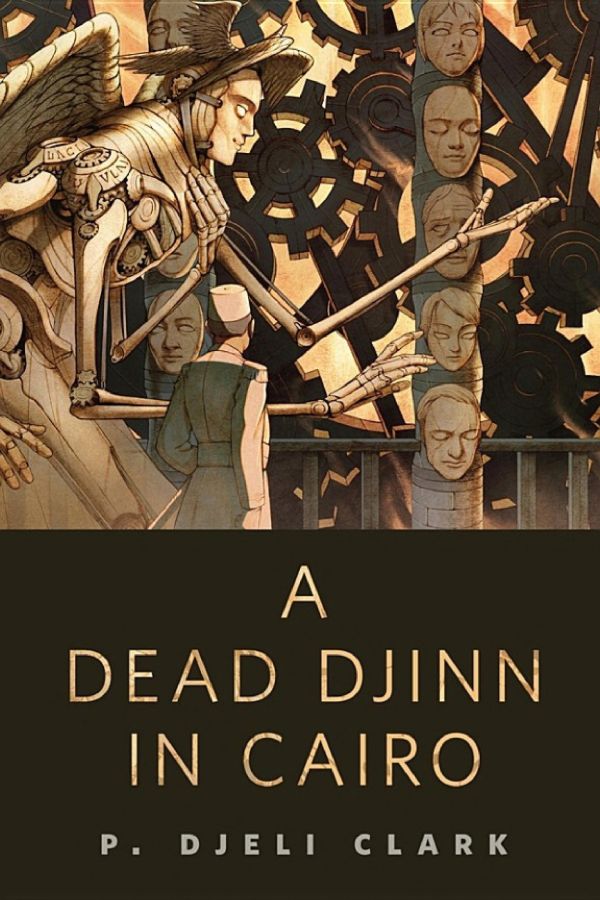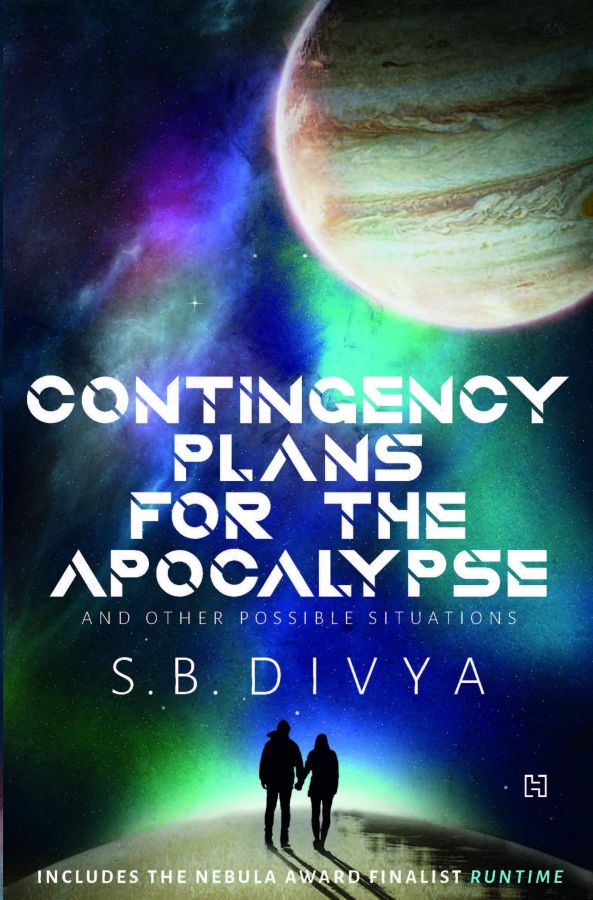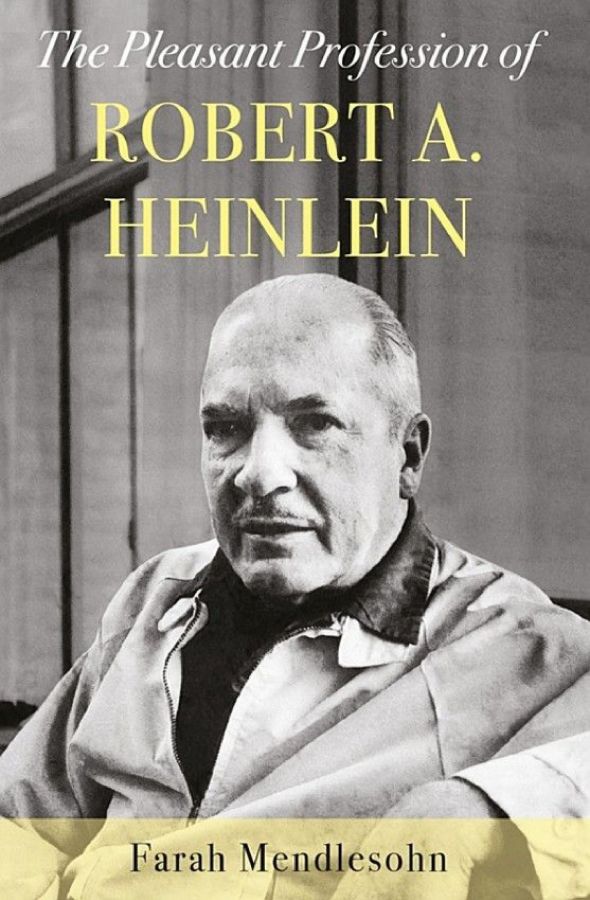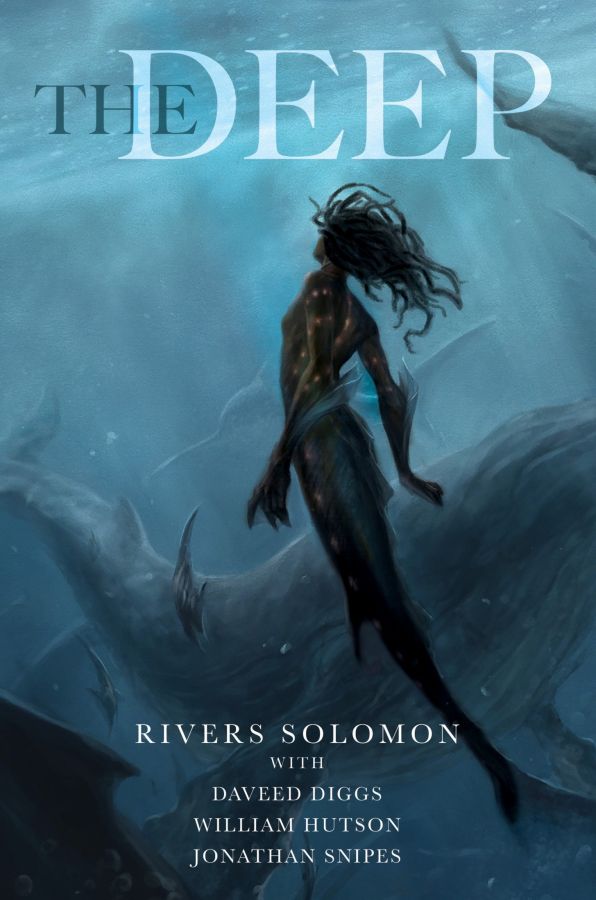Books Received, August 24 — 30
1 Sep, 2019
0 comments

Egypt, 1912. In an alternate Cairo infused with the otherworldly, the Ministry of Alchemy, Enchantments and Supernatural Entities investigate disturbances between the mortal and the (possibly) divine. What starts off as an odd suicide case for Special Investigator Fatma el-Sha’arawi leads her through the city’s underbelly as she encounters rampaging ghouls, saucy assassins, clockwork angels, and plot that could unravel time itself, in P. Djèlí Clark’s Tor.Com Original, A Dead Djinn in Cairo.

A sickly biologist shuts herself off from the world and its deadly pollutants to research her beloved microbiota in peace — until a chance encounter drives her to venture out into an unliveable Bangalore.
In a dystopian Arizona, a couple performs forbidden life-saving abortions amid the threat of tanks and drones, the strict report of automatic weapons and the spying eyes of neighbours.
A young woman competes in a gruelling challenge, determined to win a place in a world where body modifications equal class and grant people the privilege of transcending gender.
In this collection of 14 layered stories featuring dying cities, undying humans, amorphous bodies, cyborg racers and magic beetles, internationally acclaimed writer and data scientist S.B. Divya treads the line between the present and the future, while exploring the eternal conundrums of identity and love in speculative worlds.

Robert A. Heinlein began publishing in the 1940s at the dawn of the Golden Age of science fiction, and today he is considered one of the genre’s ‘big three’ alongside Arthur C. Clarke and Isaac Asimov. His short stories were instrumental in developing its structure and rhetoric, while novels such as Stranger in a Strange Land and Starship Troopersdemonstrated that such writing could be a vehicle for political argument. Heinlein’s influence remains strong, but his legacy is fiercely contested. His vision of the future was sometimes radical, sometimes deeply conservative, and arguments have flared up recently about which faction has the most significant claim on his ideas. In this major critical study, Hugo Award-winner Farah Mendlesohn carries out a close reading of Heinlein’s work, including unpublished stories, essays, and speeches. It sets out not to interpret a single book, but to think through the arguments Heinlein made over a lifetime about the nature of science fiction, about American politics, and about himself.

The water-breathing descendants of African slave women tossed overboard have built their own underwater society — and must reclaim the memories of their past to shape their future in this brilliantly imaginative novella inspired by the Hugo Award – nominated song “The Deep” from Daveed Diggs’s rap group clipping.Yetu holds the memories for her people — water-dwelling descendants of pregnant African slave women thrown overboard by slave owners — who live idyllic lives in the deep. Their past, too traumatic to be remembered regularly, is forgotten by everyone, save one — the historian. This demanding role has been bestowed on Yetu. Yetu remembers for everyone, and the memories, painful and wonderful, traumatic and terrible and miraculous, are destroying her. And so, she flees to the surface, escaping the memories, the expectations, and the responsibilities — and discovers a world her people left behind long ago. Yetu will learn more than she ever expected to about her own past — and about the future of her people. If they are all to survive, they’ll need to reclaim the memories, reclaim their identity — and own who they really are. Inspired by a song produced by the rap group Clipping for the This American Life episode “We Are In The Future,” The Deep is vividly original and uniquely affecting.